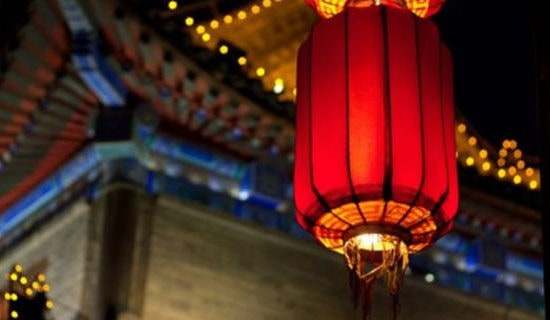介紹春節(jié)習(xí)俗的英文文章
The Spring Festival is the most important festival for the Chinese people and is when all family members get together, just like Christmas in the West. All people living away from home go back, becoming the busiest time for transportation systems of about half a month from the Spring Festival. Airports, railway stations and long-distance bus stations are crowded with home returnees.The Spring Festival falls on the 1st day of the 1st lunar month, often one month later than the Gregorian calendar. It originated in the Shang Dynasty (c. 1600 BC-c. 1100 BC) from the people‘s sacrifice to gods and ancestors at the end of an old year and the beginning of a new one.

Strictly speaking, the Spring Festival starts every year in the early days of the 12th lunar month and will last till the mid 1st lunar month of the next year. Of them, the most important days are Spring Festival Eve and the first three days. The Chinese government now stipulates people have seven days off for the Chinese Lunar New Year.Many customs accompany the Spring Festival. Some are still followed today, but others have weakened.On the 8th day of the 12th lunar month, many families make laba porridge, a delicious kind of porridge made with glutinous rice, millet, seeds of Job‘s tears, jujube berries, lotus seeds, beans, longan and gingko.The 23rd day of the 12th lunar month is called Preliminary Eve. At this time, people offer sacrifice to the kitchen god. Now however, most families make delicious food to enjoy themselves.After the Preliminary Eve, people begin preparing for the coming New Year. This is called "Seeing the New Year in".Store owners are busy then as everybody goes out to purchase necessities for the New Year. Materials not only include edible oil, rice, flour, chicken, duck, fish and meat, but also fruit, candies and kinds of nuts. What‘s more, various decorations, new clothes and shoes for the children as well as gifts for the elderly, friends and relatives, are all on the list of purchasing.Before the New Year comes, the people completely clean the indoors and outdoors of their homes as well as their clothes, bedclothes and all their utensils.Then people begin decorating their clean rooms featuring an atmosphere of rejoicing and festivity. All the door panels will be pasted with Spring Festival couplets, highlighting Chinese calligraphy with black characters on red paper. The content varies from house owners‘ wishes for a bright future to good luck for the New Year. Also, pictures of the god of doors and wealth will be posted on front doors to ward off evil spirits and welcome peace and abundance.The Chinese character "fu" (meaning blessing or happiness) is a must. The character put on paper can be pasted normally or upside down, for in Chinese the "reversed fu" is homophonic with "fu comes", both being pronounced as "fudaole." What‘s more, two big red lanterns can be raised on both sides of the front door. Red paper-cuttings can be seen on window glass and brightly colored New Year paintings with auspicious meanings may be put on the wall.
【介紹春節(jié)習(xí)俗的英文文章】相關(guān)文章:
介紹清明節(jié)習(xí)俗的文章10-22
關(guān)于國(guó)慶節(jié)的習(xí)俗英文文章05-27
關(guān)于清明節(jié)習(xí)俗的文章11-05
清明節(jié)的習(xí)俗及文章02-14
大寒的習(xí)俗介紹01-27
京族春節(jié)習(xí)俗11-07
仫佬族春節(jié)習(xí)俗11-07
元旦的由來習(xí)俗介紹11-15
